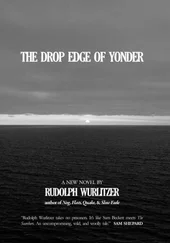W. MAUGHAM - The Razor's Edge
Здесь есть возможность читать онлайн «W. MAUGHAM - The Razor's Edge» весь текст электронной книги совершенно бесплатно (целиком полную версию без сокращений). В некоторых случаях можно слушать аудио, скачать через торрент в формате fb2 и присутствует краткое содержание. Жанр: Современная проза, на английском языке. Описание произведения, (предисловие) а так же отзывы посетителей доступны на портале библиотеки ЛибКат.
- Название:The Razor's Edge
- Автор:
- Жанр:
- Год:неизвестен
- ISBN:нет данных
- Рейтинг книги:3 / 5. Голосов: 1
-
Избранное:Добавить в избранное
- Отзывы:
-
Ваша оценка:
- 60
- 1
- 2
- 3
- 4
- 5
The Razor's Edge: краткое содержание, описание и аннотация
Предлагаем к чтению аннотацию, описание, краткое содержание или предисловие (зависит от того, что написал сам автор книги «The Razor's Edge»). Если вы не нашли необходимую информацию о книге — напишите в комментариях, мы постараемся отыскать её.
The Razor's Edge — читать онлайн бесплатно полную книгу (весь текст) целиком
Ниже представлен текст книги, разбитый по страницам. Система сохранения места последней прочитанной страницы, позволяет с удобством читать онлайн бесплатно книгу «The Razor's Edge», без необходимости каждый раз заново искать на чём Вы остановились. Поставьте закладку, и сможете в любой момент перейти на страницу, на которой закончили чтение.
Интервал:
Закладка:
Larry hesitated for a moment, and when he went on I knew he wasn't speaking to me but to the Benedictine monk. He had forgotten me. I don't know what there was in the time or the place that enabled him to speak, without my prompting, of what his natural reticence had so long concealed.
'Uncle Bob Nelson was very democratic and he sent me to the high school at Marvin. It was only because Louisa Bradley nagged him into it that when I was fourteen he let me go to St Paul's. I wasn't very good at anything, either at work or games, but I fitted in all right. I think I was an entirely normal boy. I was crazy about aviation. Those were the early days of flying and Uncle Bob was as excited about it as I was. He knew some of the airmen, and when I said I wanted to learn to fly he said he'd fix it for me. I was tall for my age and when I was sixteen I could easily pass for eighteen. Uncle Bob made me promise to keep it a secret, because he knew everyone would be down on him like a ton of bricks for letting me go, but as a matter of fact he helped me to get over to Canada and gave me a letter to someone he knew, and the result was that by the time I was seventeen I was flying in France.
'They were terrible gimcrack planes we flew in then, and you practically took your life in your hands each time you went up. The heights we got to were absurd, judged by present standards, but we didn't know any better and thought it wonderful. I loved flying. I couldn't describe the feeling it gave me, I only knew I felt proud and happy. In the air, 'way up, I felt that I was part of something very great and very beautiful. I didn't know what it was all about, I only knew that I wasn't alone any more, by myself as I was, two thousand-feet up, but that I bebfiged. I can't help it if it sounds silly. When I was flying above the clouds and they were like an enormous flock of sheep below me I felt that I was at home with infinitude.'
Larry paused. He gazed at me from the caverns of his impenetrable eyes, but I did not know whether he saw me.
'I'd known that men had been killed by the hundred thousand, but I hadn't seen them killed. It didn't mean very much to me. Then I saw a dead man with my own eyes. The sight filled me with shame.'
'Shame?' I exclaimed involuntarily.
'Shame, because that boy, he was only three or four years older than me, who'd had such energy and daring, who a moment before had had so much vitality, who'd been so good, was now just mangled flesh that looked as if it had never been alive.'
I didn't say anything. I had seen dead men when I was a medical student and I had seen many more during the war. What had dismayed me was how trifling they looked. There was no dignity in them. Marionettes that the showman had thrown into the discard.
'I didn't sleep that night. I cried. I wasn't frightened for myself; I was indignant; it was the wickedness of it that broke me. The war came to an end and I went home. I'd always been keen on mechanics, and if there was nothing doing in aviation, I'd intended to get into an automobile factory. I'd been wounded and had to take it easy for a while. Then they wanted me to go to work. I couldn't do the sort of work they wanted me to do. It seemed futile. I'd had a lot of time to think. I kept on asking myself what life was for. After all it was only by luck that I was alive; I wanted to make something of my life, but I didn't know what. I'd never thought much about God. I began to think about Him now. I couldn't understand why there was evil in the world. I knew I was very ignorant; I didn't know anyone I could turn to and I wanted to learn, so I began to read at haphazard.
'When I told Father Ensheim all this he asked me: "Then you've been reading for four years? Where have you got?"
'"Nowhere," I said.
'He looked at me with such an air of radiant benignity that I was confused. I didn't know what I'd done to arouse so much feeling in him. He softly drummed his fingers on the table as though he were turning a notion over in his mind.
'"Our wise old Church," he said then, "has discovered that if you will act as if you believed belief will be granted to you; if you pray with doubt, but pray with sincerity, your doubt will be dispelled; if you will surrender yourself to the beauty of that liturgy the power of which over the human spirit has been proved by the experience of the ages, peace will descend upon you. I am returning to my monastery in a little while. Why don't you come and spend a few weeks with us? You can work in the fields with our lay brothers; you can read in our library. It will be an experience no less interesting than working in a coal mine or on a German farm."
'"Why do you suggest it?" I asked.
'"I've been observing you for three months," he said. "Perhaps I know you better than you know yourself. The distance that separates you from faith is no greater than the thickness of a cigarette paper."
'I didn't say anything to that. It gave me a funny sort of feeling, as though someone had got hold of my heartstrings and were giving them a tug. At last I said I'd think about it. He dropped the subject. For the rest of Father Ensheim's stay in Bonn we never spoke of anything connected with religion again, but as he was leaving he gave me the address of his monastery and told me if I made up my mind to come I had only to write him a line and he'd make arrangements. I missed him more than I expected. The year wore on and it was midsummer. I liked it well enough in Bonn. I read Goethe and Schiller and Heine. I read Holderlin and Rilke. Still I wasn't getting anywhere. I thought a lot of what Father Ensheim had said, and at last I decided to accept his offer.
'He met me at the station. The monastery was in Alsace and the country was pretty. Father Ensheim presented me to the abbot and then showed me to the cell that had been assigned to me. It had a narrow iron bed, a crucifix on the wall, and by way of furniture only the barest necessities. The dinner bell ra^g and I made my way to the refectory. It was a huge vaulted chamber. The abbot stood at he door with two monks, one of whom held a basin and the other a towel, and the abbot sprinkled a few drops of water on the hands of the guests by way of washing them and dried them with the towel one of the two monks handed him. There were three guests besides myself, two priests who were passing that way and had stopped off for dinner and an elderly, grouchy Frenchman who was making a retreat.
'The abbot and the two priors, senior and junior, sat at the head of the room, each at his separate table; the fathers along two sides of the walls, while the novices, the lay brothers, and the guests sat at tables in the middle. Grace was said and we ate. A novice took up his position near the refectory door and in a monotonous voice read from an edifying work. When we had finished grace was said again. The abbot, Father Ensheim, the guests, and the monk in charge of them went into a small room where we had coffee and talked of casual things. Then I went back to my cell.
'I stayed there three months. I was very happy. The life exactly suited me. The library was good and I read a great deal. None of the fathers tried in any way to influence me, but they were glad to talk to me. I was deeply impressed by their learning, their piety, and their unworldliness. You mustn't think it was an idle life they led. They were constantly occupied. They farmed their own land and worked it themselves and they were glad to have my help. I enjoyed the splendour of the services, but the one I liked best of all was Matins. It was at four in the morning. It was wonderfully moving to sit in the church with the night all around you while the monks, mysterious in their habits, their cowls drawn over their heads, sang with their strong male voices the plain-song of the liturgy. There was something reassuring in the regularity of the daily round, and notwithstanding all the energy that was displayed, notwithstanding the activity of thought, you had an abiding sense of repose.'
Читать дальшеИнтервал:
Закладка:
Похожие книги на «The Razor's Edge»
Представляем Вашему вниманию похожие книги на «The Razor's Edge» списком для выбора. Мы отобрали схожую по названию и смыслу литературу в надежде предоставить читателям больше вариантов отыскать новые, интересные, ещё непрочитанные произведения.
Обсуждение, отзывы о книге «The Razor's Edge» и просто собственные мнения читателей. Оставьте ваши комментарии, напишите, что Вы думаете о произведении, его смысле или главных героях. Укажите что конкретно понравилось, а что нет, и почему Вы так считаете.









